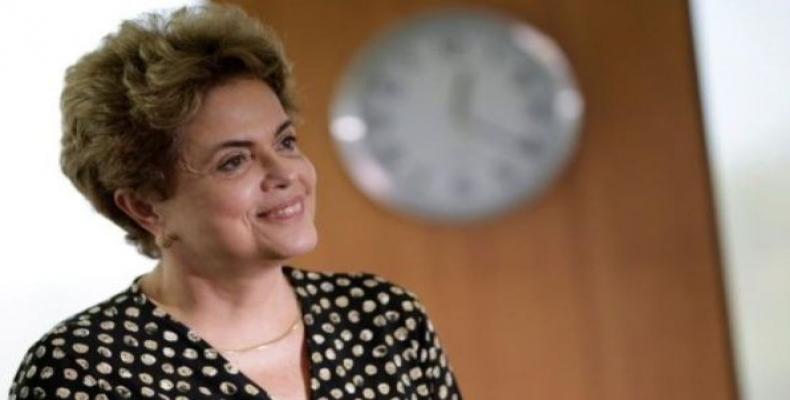Brasilia, September 20 (RHC)-- With four votes in favor and three against, the Regional Electoral Court (TRE) of Minas Gerais, Brazil upheld the senatorial candidacy of former Brazilian President Dilma Rousseff. "The court's decision gives me justice. I always trust in justice," said Rousseff, a leader of the Workers' Party.
Several legal challenges were brought forth against the legitimacy of her candidacy. They all resulted from the 2016 Senate vote, which consecrated her impeachment due to alleged public budget irregularities. Congress recognized her impeachment but did not strip the former head of state of her political rights.
Rousseff must now make her candidacy official by registering with the Superior Electoral Tribunal. The latest poll conducted by Ibope reveals that Dilma Rousseff leads the senatorial race in the state of Minas Gerais with 28 percent of the vote. Her nearest rival, journalist Carlos Viana of the Humanist Party of Solidarity, polled in second place with 15 percent of the vote.
When asked why run for a Senate seat in the state of Minas Gerais, Rousseff responded: "I grew up here and I became politically and socially conscious here when I was young. This is where I started advocating against the military dictatorship at the end of the Sixties."
Rousseff was impeached, in what many legal experts consider to be a “parliamentary coup.” She often reminds followers of the misogynistic fervor that accompanied her removal from office. “Dilma is a harsh woman; men are firm. Dilma is emotionally unstable; men are sensible," she tweeted.
“I was (considered) 'obsessive-compulsive with work' -- men are dynamic and hard-workers. The misogyny game is well-employed by those who use it,” she added.
Brazilian court rules in favor of Dilma's senate candidacy

Related Articles
Commentaries
MAKE A COMMENT
All fields requiredMore Views
- Venezuela's attorney general denounces Salvadoran president as the top leader of the Maras
- Lions Break Liván Moinelo's Undefeated Streak in Japanese Baseball
- Israel massacres more than 300 in Gaza in 48 hours as U.S. mercenaries reportedly shoot and kill Palestinian aid seekers
- Israeli official admits Iranian capture of drones worth hundreds of millions of dollars
- Statement by the Network of Intellectuals and Artists in Defense of Humanity / Argentina Chapter

